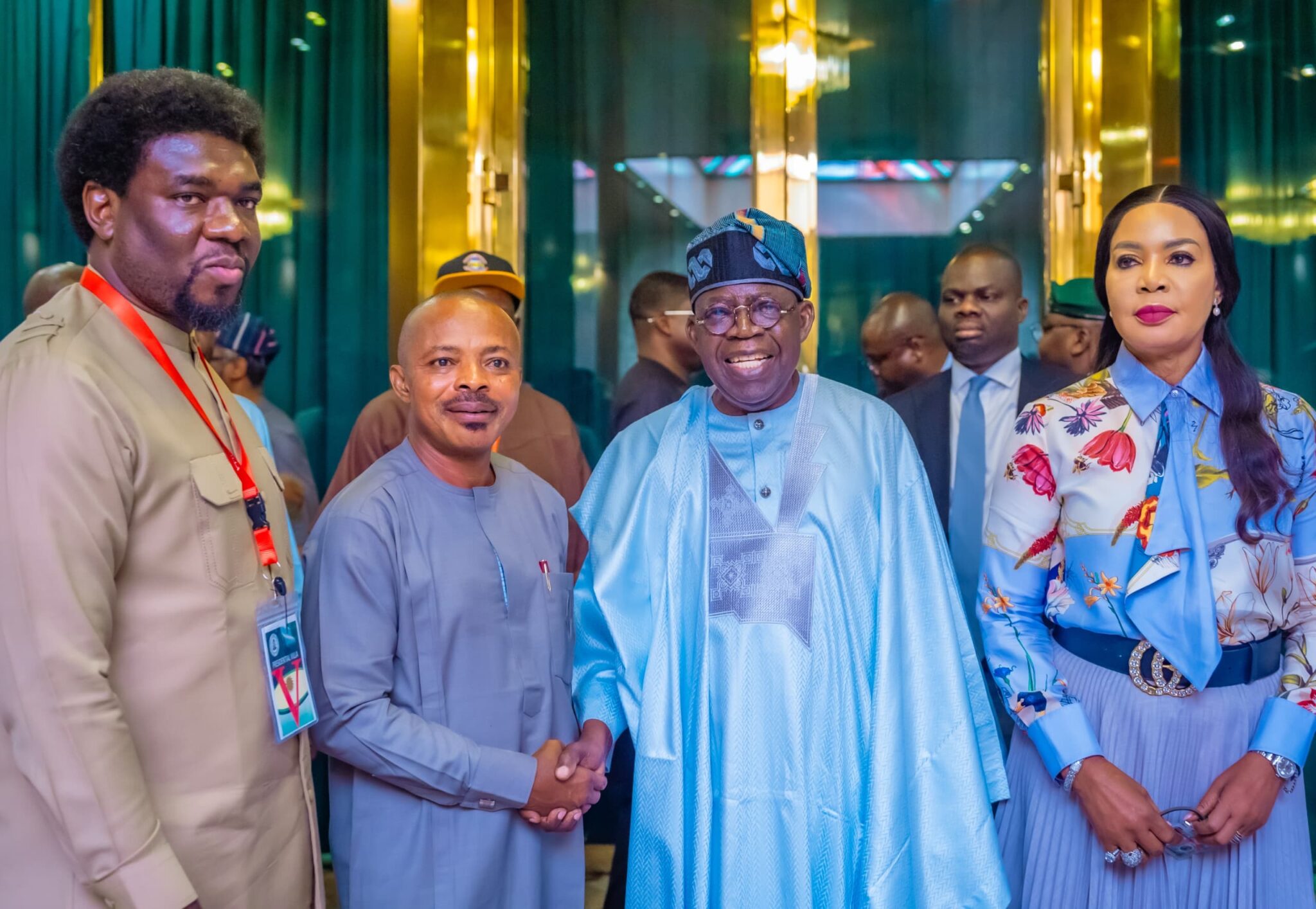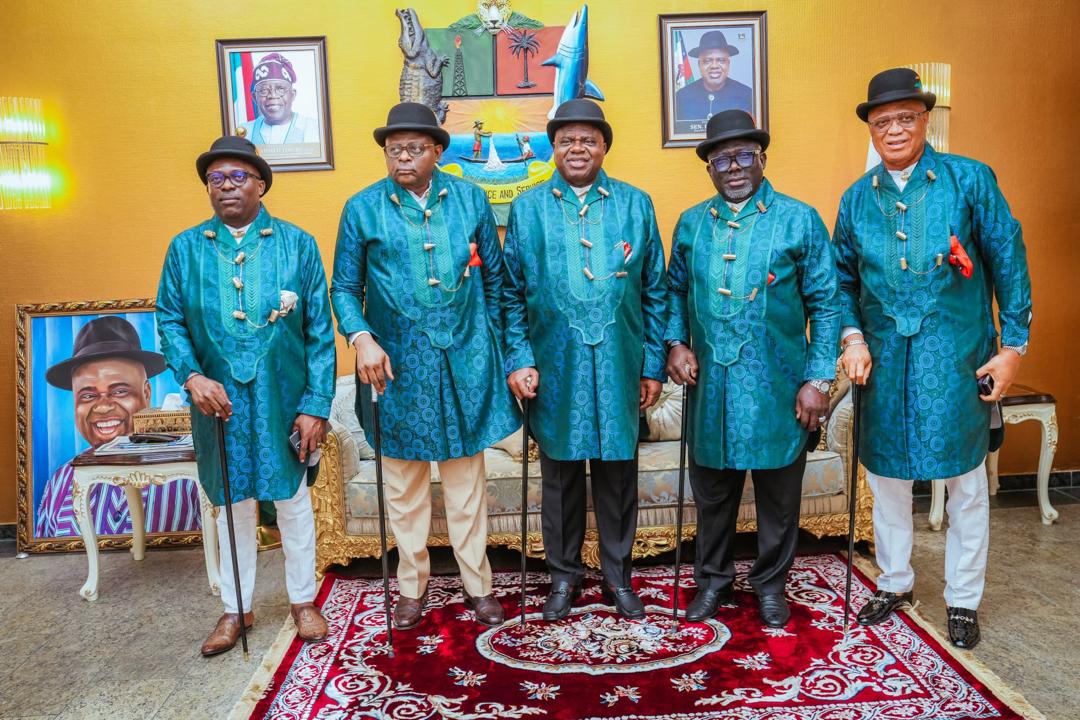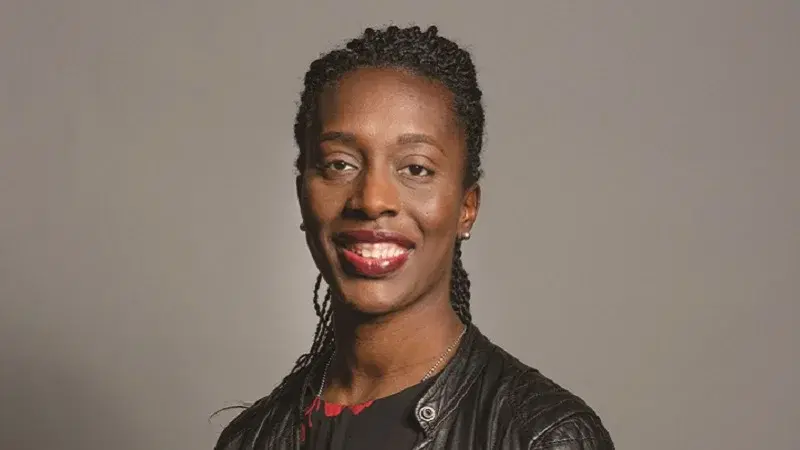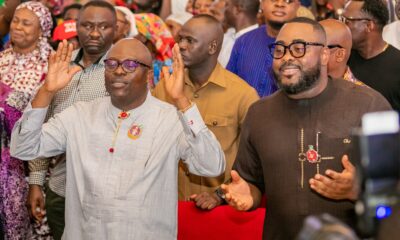News
N70,000 Minimum Wage: How Tinubu Convinced Labour Leaders

President Bola Tinubu yesterday increased the Federal Government’s offer on the national minimum wage from N62,000 to N70,000, with an assurance that it will be reviewed after three years, instead of five years.
Tinubu said he had to intervene in the negotiations, knowing the economic challenges faced by many Nigerians, and the need to provide urgent succour.
He said this at a meeting with the leadership of the Nigeria Labour Congress (NLC) and the Trade Union Congress (TUC), at the Presidential Villa, in Abuja.
“I have heard all your presentations. You came here with the intention to get something on behalf of your members. It has been tough globally. And if you review my track record, I have never been found wanting in ameliorating the problem of workers.
“I belong to the people and to all of you in leadership. Without you, this job is not interesting,” the President said, in statement by Chief Ajuri Ngelale, his spokesman.
He said the labour leaders challenged the thinking faculty of leadership, “and we have reviewed the position. I have consulted widely, and when the tripartite committee submitted their reports, I reviewed them again and started to think and rethink.
“Last week, I brought the workload to you because we have a timeline. We have a problem, and we recognise that you have a problem too.
“We are in the same economy. We are in the same country. We may have different rooms, different addresses, and different houses; we are just members of one family that must care for each other.
“We must look at the parameters of things. Here, I have a speed limit, and I must pay attention to traffic warnings; slippery when wet, curved roads, and be careful not to have an accident. That is why I went as far as having this meeting today.”
He said the government and labour leaders were driving the economy together.
“Let us look at the tenure of review. Let us agree on that, and affirm three years. Two years is too short. We affirm three years. We will review.
“I am going to move from the tripartite committee. I am going to edge a little bit forward, looking at the review that we have done.
“Yes, no one in the federal establishment should earn less than N70,000. So, we are going to benchmark at N70,000,” he said.
Tinubu explained that renewing the hope of Nigerians extended to providing infrastructure that would improve their livelihoods and create an inclusive economy that all could participate and benefit.
The President said the government was committed to reducing the cost of transportation with the introduction of Compressed Natural Gas-powered buses, which would be cheaper and efficient.
He also assured the labour unions of providing buses that would be deployed across the country.
President Tinubu also said the entitlements of members of the Senior Staff Association of Nigerian Universities and the Non-Academic Staff Union of Universities and Allied Institutions would be considered.
He urged the Ministries of Finance, and Budget & Economic Planning to look at the possibilities of clearing the backlog.
At the meeting, Sen. George Akume, the Secretary to the Government of the Federation, thanked the President for his consideration of issues as the “Father of the Nation” and scheduling two meetings to resolve the initial impasse.
“Mr President, at the tripartite meeting, and the resolutions of the government, Organised Private Sector and labour unions; we were all united as one family to promote and grow our economy, and deepen our democracy, by implication to the benefit of all.
“Basically, that is what we are saying today. We have a listening President here,” said Akume.
Comrade Joe Ajaero, the NLC President, and Comrade Festus Osifo, his TUC counterpart, thanked the President for creating time to host two meetings on the review of the national minimum wage.
The two labour leaders acknowledged that at the last meeting, the President directed the rescheduling of an official trip in order to attend the second meeting.
The labour leaders also expressed their appreciation to the President, applauding him for his clear show of commitment to the welfare of Nigerian workers.
News
Let’s Approach Regional Development Issues Differently – Fubara …As S’South Govs Host Fubara To 50th Birthday Celebration

Rivers State Governor, Sir Siminalayi Fubara, has sued for a change in the current approach adopted by South South Governors in their pursuit to achieve holistic regional development and economic prosperity.
The governor insisted on de-emphasis in vested individuals’ political interests while looking at the bigger picture of achieving enduring regional integration that will strengthen unity of purpose to change the trajectory of development in the region.
Fubara made the appeal during the meeting of Governors of South-South States, under the auspices of BRACED Commission, at the Bayelsa State Government House in Yanagoa on Tuesday.
This was contained in a statement by the Chief Press Secretary to the Governor, Nelson Chukwudi.
BRACED is an acronym for Bayelsa, Rivers, Akwa Ibom, Cross River, Edo and Delta.
He said: “I want to appeal that if we have to succeed in this drive, we need to keep our political differences aside and understand that the struggle, as at today, is for posterity, for the development of our region.
“It is really sad that in Niger Delta that is the economic base of this country, the construction of a road that you tagged ‘East-West Road’ could be an issue, that we need to beg, protest, and complain to get it fixed. I don’t think it is proper.”
Governor Fubara stated that it is not that the federal authorities do not understand that Niger Delta needs the road but quickly added that they have seen that even the people of the region do not take themselves seriously.
The governor said the moment Niger Delta people stopped playing to the gallery, and place value on themselves, outsiders will have no option than to accord the region and its people due regard.
Fubara said: “On my part, I want to say this: This is not the first time we are meeting. For me, I followed the course of the region meeting in a forum that we tagged “BRACED Commission.”
“BRACED Commission is also one of the bodies that was constituted at that time to support and work out development strategies for this region. But what I am seeing today is just limiting this meeting to only BRACED COMMISSION.
“We need to widen the scope where other leaders of the region should be part of the discussion of the development of the region, and I think this is the direction that will help the region.”
Reading the Communique of the meeting, the new Chairman of the Forum of Governors of South-South States, and Governor of Bayelsa State, Senator Douye Diri, said they support the Federal Government Tax Reform Bills, and urged President Bola Tinubu to extend the Value Added Tax (VAT) sharing percentages to oil and gas derivation.
He stated the Forum’s request to the Federal Government to urge relevant stakeholders and agencies to extend remediation of polluted environment ongoing in Ogoni land to other impacted communities and States in the region.
Governor Diri also said that the Forum resolved to establish a structural regional security network to enhance safety and security, foster stable Niger Delta region conducive for economic growth and prosperity.
Highlight of the event was the hosting of Governor Fubara to a surprise 50th Birthday celebration by the Governors of South-South States at the Government House in Yenagoa.
News
Fubara Lauds Tinubu For Setting Up Education Load Fund … Vows To Ensure Rivers Benefit Maximally From Scheme

The Rivers State Government has applauded President Ahmed Bola Tinubu for conceiving the idea of setting up the Nigeria Education Loan Fund (NELFUND) which has opened up opportunities for youths to acquire tertiary education irrespective of their financial status.
Rivers State Governor, Sir Siminalayi Fubara, gave the commendation while playing host to a delegation from NELFUND who came on an advocacy visit to the Government House in Port Harcourt on Tuesday.
Represented by his deputy, Prof. Ngozi Nma Odu, Governor Fubara said in developed countries it is common for people to go through school with loans which they sometimes pay all throughout their lives, noting that “for us, it is more accessible and more friendly because you would be required to pay back the loan two years after your National Youth Service.
“It is a win-win situation; it is a situation where the youths in Nigeria should not say because my parents are poor or passed away I cannot improve on my educational growth. This offers them a golden opportunity and I am glad you came for this advocacy.”
The governor urged NELFUND to intensify its advocacy to let the people know how they can benefit from it, adding that it is more important when talking about vocational institutions.
“If you look at the developed countries it is people that went to the vocational schools that make so much money, because it is pricey to get somebody to do anything, we need to instil this into our people, our youths, because people sometimes tend to look down on people that went to vocational schools, it should not be,” he said.
Fubara expressed delight with the NELFUND programme and assured that the State Government would do whatever it can to ensure Rivers State benefits maximally from the scheme.
In his remarks, the Managing Director and Chief Executive of NELFUND, Dr. Akintunde Sawyer, informed the governor that they were in Rivers State to seek the support of the State Government towards the loan, stressing that President Tinubu has directed them to ensure no Nigerian student who has the ability and desire to get educated at tertiary level is denied the opportunity due to lack of funding.
He explained that the scheme provides interest-free loans to students who apply, adding that these loans are not repayable until two years after their Youth Service when they must have gotten a job.
News
UK Appoints British-Nigerian As Trade Envoy To Nigeria

A British-Nigerian politician, Florence Eshalomi, has been appointed as the United Kingdom’s trade envoy to Nigeria.
Her appointment makes Eshalomi the second Nigerian to hold the position.
Confirming her appointment on X on Tuesday, she wrote: “It is an honour to have been appointed as the United Kingdom’s Trade Envoy to Nigeria.
“I’m looking forward to building on my close ties with Nigeria to promote a strong and flourishing economic relationship between our two great nations.
“I am looking forward to strengthening the UK’s relationship with Nigeria to explore shared growth and opportunities for both countries.”
Announcing the appointment in a statement on Tuesday, Jonathan Reynolds, the UK’s Business and Trade Secretary, said the decision was aimed at attracting investment into the UK and boosting economic growth.
“I’ve launched a new team of trade envoys who will use their experience, expertise, and knowledge to unlock new markets around the world for British businesses, attract investment into the UK, and ultimately drive economic growth,” Reynolds said.
Eshalomi, 44, is an MP representing the Vauxhall and Camberwell Green constituency.
She holds a Bachelor of Arts (Hons) in Political and International Studies with Law from Middlesex University.
-

 Editorial3 days ago
Editorial3 days agoHurray, Siminalayi Fubara Is 50!
-

 News22 hours ago
News22 hours agoUK Appoints British-Nigerian As Trade Envoy To Nigeria
-

 Business19 hours ago
Business19 hours agoFG Issues 25-year Licence To 10 Gas Distribution Coys
-
Column3 days ago
Nuclear Stocks Soar on Stargate AI Infrastructure Announcement
-
News1 day ago
FG Deports 828 Illegal Immigrants, Tightens Border Security
-
Rivers20 hours ago
Holy Ghost Rally, Source Of Blessings-Fubara
-
Rivers3 days ago
Group Decries Claim Over Bukuma Royal Stool
-
Niger Delta23 hours ago
D’Gov Tasks APWEN, Others On SMART Goals

